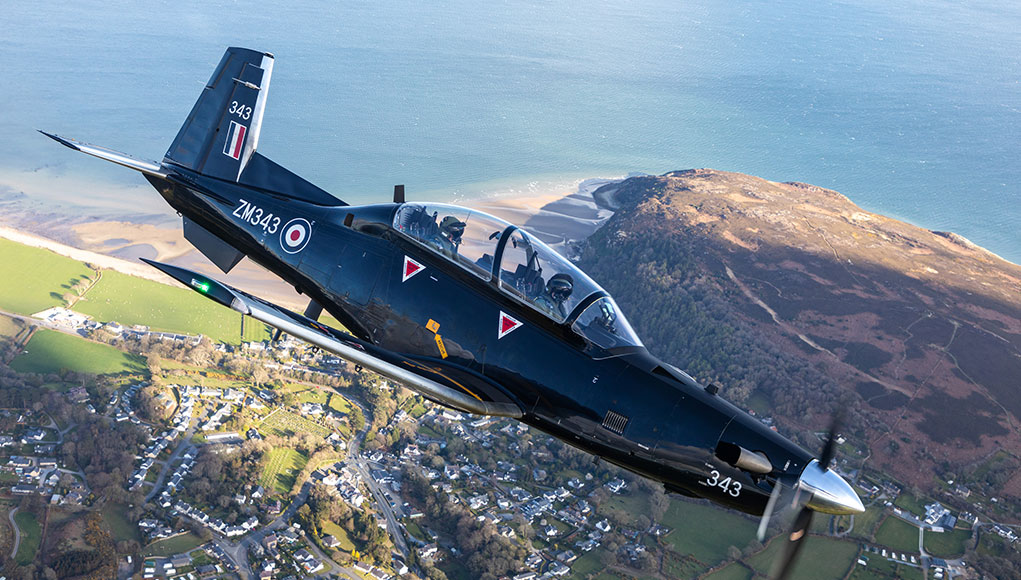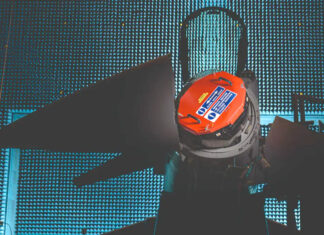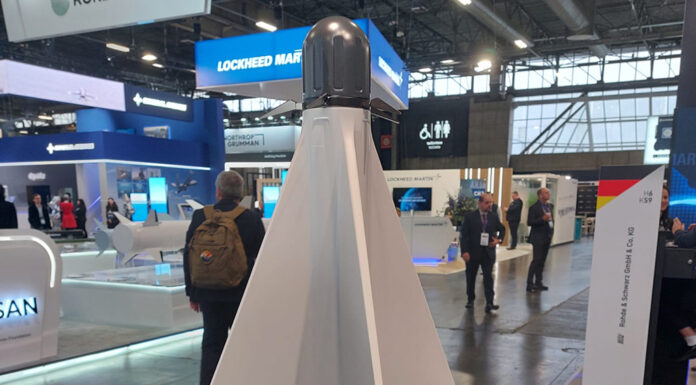The 50,000 flight hours milestone celebrated by the Royal Air Force and the Affinity Group was an important achievement for the company. In only seven years, Affinity evolved from a ten-employee startup to a group of 180 professional personnel operating a fleet of 42 aircraft training aircraft in three bases, supporting the elementary, basic, and multi-engine pilots training for the RAF and Royal Navy. With this proven record, Affinity has established itself as a role model for other countries looking for a similar approach to military training.
In the following article, Kees Otten and Wim Das summarize their visit to the company, where they had a personal impression of its activity. The article was first published by the Dutch aviation magazine Piloot & Vliegtuig.
The article is republished here with permission of Dutch Defence Media. The article provides some guidelines for foreign air forces considering outsourcing similar activities to service providers.
- Outsourcing: non-operational tasks to private companies, such as pilot training, can save costs and improve efficiency.
- Partnership: Building a strong partnership between government and industry, as seen in the partnership between Affinity and the UK Ministry of Defence, can lead to successful outcomes. Adding an experienced local company to the team improves efficiency and success.
- Aircraft: Choosing the right training aircraft addresses operational performance and life cycle cost efficiency and adaptability to the military training mission based on efficient aircraft use, updating systems, and availability of spare parts.
- Focus: Focusing on customer requirements by providing excellent service, maintaining skilled manpower, technical capabilities, and advanced technology, and being flexible in responding to changing needs.
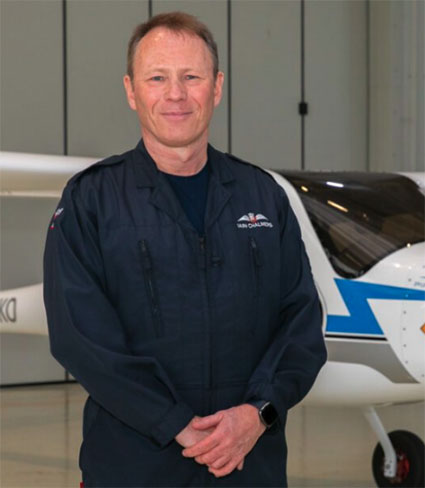
Outsourcing military tasks to private companies can best be called a trend. To gain insight into why non-operational tasks are increasingly being transferred to such parties, it is worth looking at how, in the United Kingdom, in cooperation with the British armed forces, Affinity Flying Training Services is part of the national military aircrew training system, the UK Military Flying Training System (UKMFTS). Affinity is a joint venture of US-based Kellogg Brown & Root (KBR) and Israeli Elbit’s local subsidiary, Elbit Systems UK. A recent visit by Piloot & Vliegtuig shows excellent cooperation between all parties involved. Affinity can be considered a role model for other countries looking for a similar approach.
Contracted for 17 Years
The person who has put his heart and soul into supporting Affinity and making it grow into what it is today is Iain Chalmers, a former Royal Air Force (RAF) qualified flight instructor and now managing director of Affinity. Iain explains Affinity’s role within the overarching scheme during our visit. In 2008, the UK Ministry of Defence (UK MoD) selected the Ascent consortium to work in partnership to structure a new format for pilot training. Ascent is a partnership of Lockheed Martin UK and Babcock International and is the project’s prime contractor, thus designing the new pilot training system in collaboration with the UK MoD. It is responsible for maintaining an adequate overview and is, for example, also active in providing simulator training. Together with the RAF, it also provides the necessary instructors. The mandate within the UKMFTS for Ascent involves training pilots for the Air Force, Navy, and Army, the RAF, Fleet Air Arm (FAA), and Army Air Corps (AAC), respectively.
In its turn, Ascent submitted the order to provide the fixed-wing training aircraft to Affinity in 2016. Elementary, basic, and multi-engine training aircraft procurement was thus contracted as a Private Finance Initiative (PFI) for 17 years (until mid-2033). The exceptions are advanced jet, rotary-wing, and Navy rear-crew training, which other providers deliver. It is remarkable that Affinity, operating from the RAF airbases Cranwell, Barkston Heath, and Valley, and embedded in the military flight operations at the same time, is, therefore, part of it and, on the other hand, sees the RAF, No.22 Training Group as its user and customer. So this is where the business model comes in, where service is considered the most important thing. Iain frequently consults with his next-higher level, Ascent, essentially his direct customer.
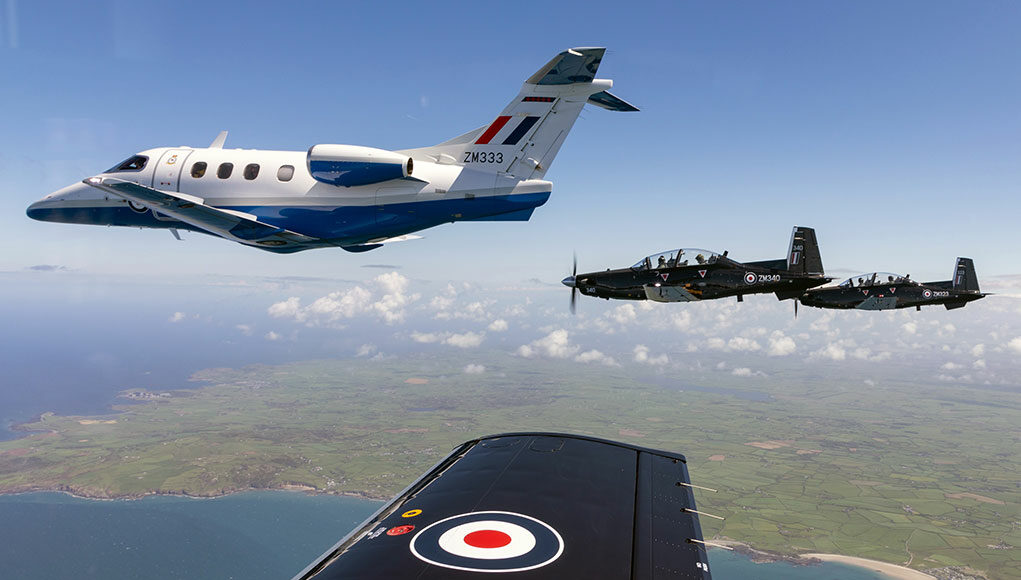
The Value of Operational Experience
Affinity started small with six people, and during the first two years, there was a lot to arrange and set up. This included purchasing aircraft, recruiting ground personnel, and obtaining approval for the systems and maintenance procedures. This process was eased because Elbit Systems has built extensive experience in recent years in supplying military training aircraft and fleets, supporting their operational use, with accompanying maintenance and logistics procedures provided as a complete module. Elbit previously did so in Israel, among other countries, and is now establishing a similar framework in Greece. Shai Louk, the business development director of flight academies & services of Elbit Systems, tells us that Elbit “operates almost 180 training aircraft worldwide” and that it is precisely because of this experience that so much knowledge and insight have been gained on how to organize such training schemes.
Iain agrees that partly because of this, the consortium was able to present to the British Ministry of Defence and Ascent a particularly good offer to support the need for a new training concept in practice. This need mainly concerned the switch to training that would be much more in line with the digital capabilities available today in aircraft with which the front-line squadrons are equipped. It is important to build and shape digital awareness to a sufficient performance level of the pilot in training to be able to fly the modern 5th generation aircraft and understand and control their capabilities.
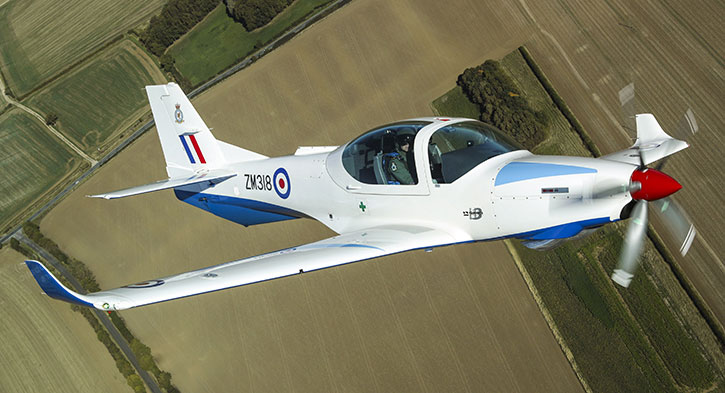
Training Aircraft Chosen With Care
Elbit Systems’ experience led to carefully choosing the most suitable aircraft. The commercial availability of the aircraft and its supply chain was of paramount importance. Also, selecting an aircraft requiring minimum changes and upgrades prepares it for the military training mission favored.
The choice for ‘elementary flying training’ (EFT) fell on the Grob G 120TP, known within the RAF as Prefect T.1 – 23 such aircraft were acquired by the operator and became operational beginning in 2017. A student receives practical flying hours on these trainers and significant time using Ground Based Training Equipment. Those who look into the cockpit of a Prefect T.1 understand how the transition to digital awareness is taught. Even at this elementary phase, there is an elaborate “glass cockpit” that, a decade ago, one would only find in a fighter aircraft. The Prefects supplied by Affinity operate from Cranwell and Barkston Heath and serve RAF and Fleet Air Arm pilots in training.
After successfully completing elementary flying training, there are two directions to proceed. If destined to become a fighter pilot, basic flying training (BFT) on the Textron T-6C Texan II comes next. Affinity has ten of these at Valley, and they became operational starting in 2019. Four additional aircraft were recently added and are now operational. After that, training can be continued on the Royal Air Force BAE Systems Hawk T.2, also based at Valley, for advanced jet training to be ready for the transition to the Typhoon or F-35. For the multi-engine stream, students stay at Cranwell to receive further training in one of Affinity’s five Embraer Phenom 100s in the form of Multi-engine pilot training (MEPT).
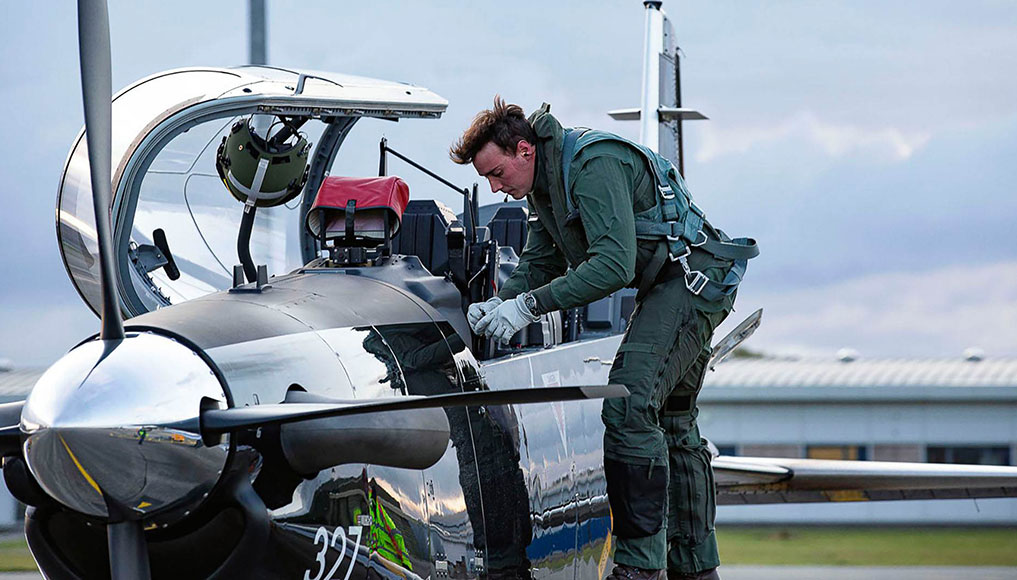
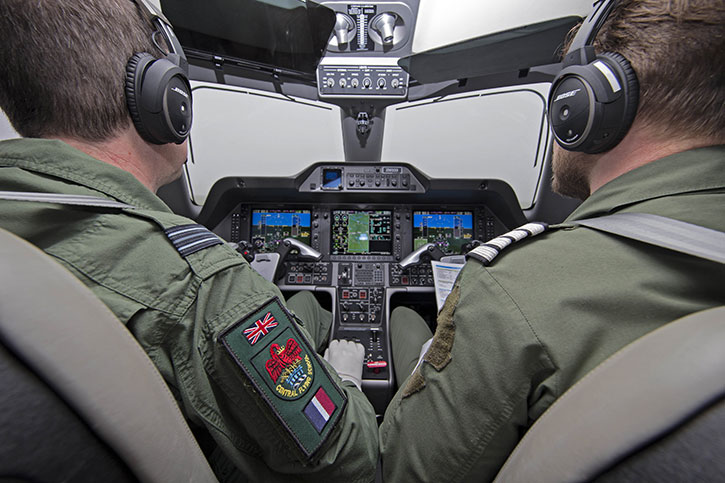
The Importance of Good Management
Being able to meet customer requirements created challenges during the COVID period. For example, the delivery of parts took longer, so Affinity management has now chosen to have more parts available in stock. Nevertheless, overall performance did not suffer from this. “After a week, we were operating as before but with new procedures,” Iain said. He attributed this to a strong financial base, quick decision-making, and “out of the box” thinking. And this marks Affinity’s inventiveness in delivering a great turnkey product.
The Prefect and Phenom maintenance and operations occur in and from the large hangars Affinity occupies at Cranwell and Barkston Heath. Personnel for these operations are sourced locally as technicians, certified engineers, marshallers, and people who refuel the aircraft. All this is done while aiming for a pleasant and safe working environment. ‘It is like running the house with all the details’ as Iain describes it.
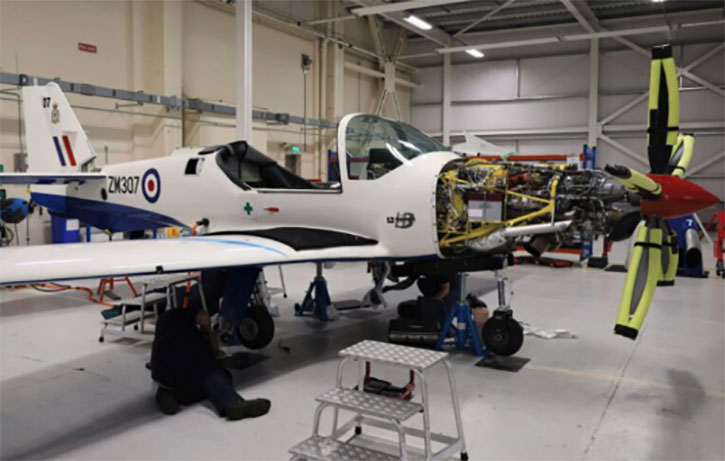
Value for Money
Affinity’s managing director and his staff have supported a real transformation in pilot training. Now with Affinity and through well-chosen systems and efficient organization, Iain can generate an adequate number of deployable training aircraft with significantly fewer people than was previously the case when the military did everything in-house. Iain: “Unlike military colleagues, we are not paid to perform operational side tasks. We only do one thing: provide flying aircraft, and do it well. The customer can then focus on training. This alone makes us a lot more efficient”. He continues: “Requirements change, however. Our efficiency also helps to create a bit of flexibility to respond to changing circumstances.”
Shai adds, “We draw up the bill at the end of the day. How much manpower was needed, and how much availability did we deliver? This is where we learn all the time.” The drive to get a little better every day is embedded in Affinity’s performance. They will soon start using tablets to do various checks to reduce further ‘turn around time.’ In this way, maintenance is becoming increasingly smart. Characteristic of the desire to involve the local industry, Affinity also invested in partners who, for example, developed software to determine the consumption of parts better and have the necessary replenishment arrive in time.
Outsourcing a Comprehensive and Flexible Service
Affinity offers flexibility when adapting to changes, whether foreseen or unforeseen. Iain calls it delivering reliability. The planes are deployed according to the customer’s requirements and schedule. Already it is clear that more pilots are being delivered. Flying with digital instruments is different, sometimes, it seems too easy. In any case, the requirement to train more pilots for the front-line squadrons is being met. The Prefect, Phenom, and Texan II do exactly what they are supposed to do. Affinity has firmly established itself at various bases and now employs 200 professionals. The coming years can therefore be viewed with confidence. The set-up of such a training scheme in which a private company organizes and executes the entire process of generating available training aircraft, including all ins and outs, could be a godsend for air forces that must make similar decisions as the RAF. Given its experience, Elbit Systems has some strong cards up its sleeve.

